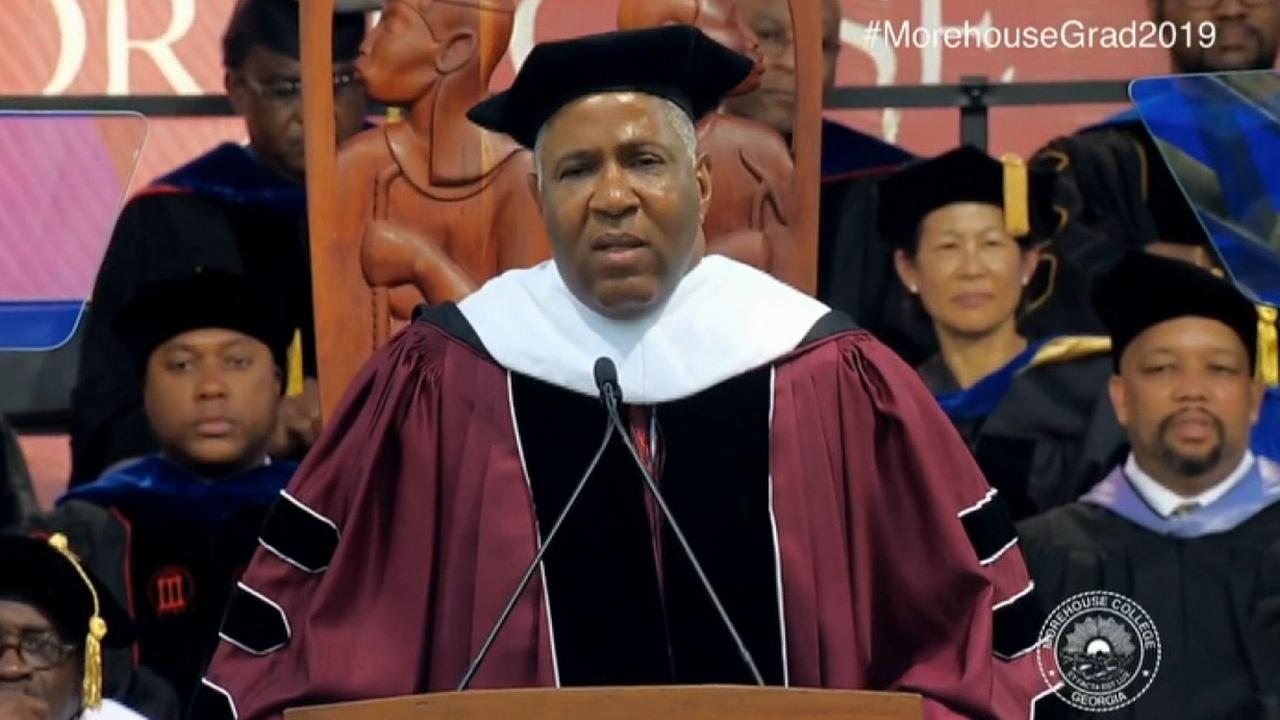Will the IRS tax Robert F. Smith's gift to Morehouse grads?
Billionaire Robert F. Smith made the 2019 class of Morehouse College graduates very happy over the weekend when he pledged to pay off their student debt burdens.
Smith told nearly 400 graduates of the historically black, all-male college in Atlanta that he would pay off those loan obligations so they were free to pursue their next chapters – a gift estimated to be worth $40 million.
The even better news for graduates is that they likely won't face any tax liabilities on the money.
The IRS is likely to consider the money a “gift.” The agency’s policy is “no tax on receipt,” meaning typically the person who receives the gift does not have to pay tax on it.
“The lender did not forgive the debt, so there is no cancellation of indebtedness income,” Bill Smith, Managing Director at CBIZ MHM's National Tax Office, told FOX Business. “Additionally, the students did not do anything to ‘win’ the debt repayment, e.g., enter a lottery or other competition.”
On the other hand, Smith’s situation might be a little more complicated, depending on how he plans to pay the debts.
A gift is generally not considered deductible, unless it is given in the form of a charitable contribution. So if Smith were to pay the checks directly from his personal account, he would not be able to claim a deduction.
He could, however, structure the payments in a way such that he is giving the money to a charitable organization, Bill Smith noted, like giving it to the school for the specific purpose of paying the students’ loans. He could also set up a private foundation and transfer the money that way.
"Either option may be fraught with its own potential pitfalls. In order to have any chance at a charitable deduction, he would have to give the money to an established charitable organization,” Bill Smith said.
There is another option: Smith could claim that he made the decision to advance his business reputation, Bill Smith noted, with the intent of raising income for himself or his business. Smith founded private equity firm Vista Equity Partners and has an estimated net worth of $5 billion, according to Forbes.
The gift tax exclusion amount in 2019 is $15,000 per year, meaning gifts up to that amount typically aren’t considered taxable. For gifts above those thresholds, the giver may be required to fill out a Form 709, or gift tax form. However, Smith’s potential exposure to this tax, again, depends on how he intends to pay the funds.
There is an increasing focus on alleviating debt burdens borne by college graduates, as the costs of higher education continue to rise.
Outstanding student loan debt has doubled over the past decade to more than $1.5 trillion in 2018 and is now second only to the amount of mortgage debt held by Americans.
CLICK HERE TO GET THE FOX BUSINESS APP
Sen. Elizabeth Warren – a 2020 Democratic candidate – recently unveiled a proposal to “cancel” student loan debt for a majority of the U.S. population that owes. The Trump administration is also looking for ways to alleviate people’s financial strain resulting from mounting higher education expenses.
In addition to his student loan forgiveness gift, Smith also said he would donate $1.5 million to be used for scholarships and a new park.




















